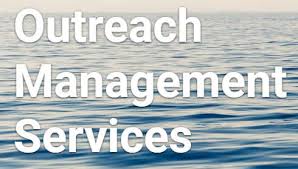Outreach management plays a pivotal role in fostering connections between organizations and the communities they serve. In a city like Gastonia, North Carolina, which blends rich history with a rapidly evolving economy, outreach management has become essential for organizations looking to create meaningful impact. This process helps build bridges between businesses, healthcare providers, non-profits, schools, and the local population, ensuring that the needs of the community are met while promoting the mission of the organization.
This article will explore the significance of outreach management in Gastonia, NC, the sectors where outreach is most impactful, and best practices for developing a successful outreach strategy.
Understanding Outreach Management
At its core, outreach management involves identifying, engaging with, and building relationships within a community. The goal is to create lasting connections that benefit both the organization and the individuals or groups it aims to serve. This process can involve education, awareness campaigns, partnerships, resource distribution, and community support programs.
In Gastonia, NC, a city that has experienced growth and change over the past few decades, outreach is essential for ensuring that all members of the community have access to the resources they need. Whether it’s healthcare, education, business development, or social services, effective outreach management ensures that organizations can reach the people who need their services the most.
Key Sectors Where Outreach Management is Crucial in Gastonia
Outreach management touches many different sectors in Gastonia. Some of the most critical areas include:
1. Healthcare Outreach
One of the most important sectors where outreach management is making a difference in Gastonia is healthcare. Gaston County has a diverse population with varying healthcare needs, and not everyone has easy access to the necessary medical services. Outreach management helps healthcare organizations reach underserved populations, particularly those facing economic challenges or transportation barriers.
For example, Caromont Health, a major healthcare provider in Gastonia, may use outreach strategies to provide educational resources about health issues, offer free screenings or health fairs, and engage in community health initiatives. Through partnerships with local schools, churches, and non-profits, healthcare outreach ensures that residents are informed about services like mental health support, preventive care, and chronic disease management.
2. Non-Profit and Social Services
Non-profits and social services rely heavily on outreach management to connect with individuals who may need assistance but are unaware of the resources available to them. Organizations in Gastonia like Crisis Assistance Ministry and Gaston Community Action focus on providing financial assistance, food, housing, and employment services to low-income residents.
Outreach management within this sector involves working with local governments, businesses, and community leaders to ensure that information about available resources is disseminated effectively. This could involve hosting workshops, setting up information booths at community events, or running social media campaigns to raise awareness about services.
3. Education and Youth Programs
Education is another sector where outreach management is critical. Schools and educational organizations in Gastonia need to engage with parents, students, and community stakeholders to ensure that children have access to quality education and support services.
Programs like Communities In Schools of Gaston County work to connect students with the resources they need to stay in school and succeed. Outreach management here might involve organizing parent-teacher workshops, community tutoring programs, or after-school activities. Additionally, these organizations may work with local businesses to provide internships or job-shadowing opportunities for high school students.
4. Business and Economic Development
Gastonia’s economy has evolved significantly, with growth in industries like manufacturing, retail, and healthcare. Outreach management is vital for economic development initiatives that aim to attract new businesses to the area while supporting existing local businesses.
The Gaston Regional Chamber plays a significant role in outreach, providing resources for business owners, offering networking opportunities, and organizing events that promote local economic growth. Outreach managers in this sector focus on engaging local entrepreneurs, connecting them with mentors, funding opportunities, and creating partnerships that contribute to the overall economic health of the community.
5. Religious and Faith-Based Outreach
Gastonia is home to many churches and religious organizations that play a central role in the social fabric of the community. Faith-based outreach is often directed at supporting families, offering spiritual guidance, and providing essential services like food and clothing distribution.
Churches often have outreach teams that partner with local non-profits, schools, and healthcare providers to deliver much-needed services. This type of outreach also involves engaging volunteers, running charity events, and organizing community drives to help those in need.
Key Strategies for Effective Outreach Management
Regardless of the sector, several key strategies contribute to the success of outreach management in Gastonia. Let’s explore some of the most effective practices:
1. Know Your Audience
Understanding the community is essential for effective outreach. Successful outreach managers invest time in researching the demographics, needs, and challenges of the community they serve. For example, in Gastonia, where there is a mix of urban and rural areas, strategies that work for reaching residents in the downtown area may not be as effective for those living in more remote parts of the county.
2. Leverage Local Partnerships
Building partnerships with local organizations, schools, businesses, and government agencies can significantly amplify outreach efforts. Collaborating with local leaders and influencers ensures that outreach messages are spread more widely and that services are delivered more efficiently. These partnerships allow organizations to pool resources, expand their reach, and create a more comprehensive approach to addressing community needs.
3. Utilize Multiple Channels
Effective outreach management involves using multiple communication channels to reach different segments of the community. This can include in-person events, social media, email newsletters, phone calls, and flyers. A multi-channel approach ensures that the message reaches as many people as possible, regardless of their preferred communication method.
For example, younger audiences may be more responsive to outreach efforts on platforms like Instagram or TikTok, while older populations may prefer more traditional methods, such as printed materials or phone calls.
4. Engage the Community
Outreach isn’t just about providing services; it’s about engaging the community in meaningful ways. Listening to feedback, involving community members in decision-making processes, and encouraging participation in events or programs fosters a sense of ownership and trust.
By holding regular community forums, town halls, or feedback sessions, outreach managers can ensure that the needs of the community are being met and that their efforts are genuinely impactful.
5. Measure Success and Adapt
Effective outreach requires continuous evaluation. Outreach managers should set clear goals and metrics to measure the success of their programs. Whether it’s the number of people reached, services provided, or partnerships established, tracking results helps identify what works and what doesn’t.
Based on this data, outreach managers can refine their strategies, allocate resources more effectively, and ensure that they are meeting the community’s evolving needs.
Challenges in Outreach Management
While outreach management has the potential to create significant positive impacts, there are also challenges that organizations in Gastonia may face. These include:
- Limited Resources: Many non-profits and community organizations operate on tight budgets, making it difficult to reach everyone who needs assistance.
- Cultural Barriers: Gastonia is home to diverse populations, and outreach managers must be sensitive to cultural differences that can affect how messages are received.
- Communication Gaps: Not everyone in the community has access to digital communication tools, which can make it challenging to spread information about services or events.
- Sustaining Engagement: Building long-term relationships with the community takes time and effort, and keeping people engaged over the long term can be difficult, particularly in a transient or busy population.
Conclusion
In Gastonia, NC, outreach management is a powerful tool for driving positive change across sectors like healthcare, education, social services, and economic development. Through targeted engagement, local partnerships, and a focus on community needs, organizations can make a lasting impact on the people they serve. As Gastonia continues to grow and evolve, effective outreach management will remain essential in ensuring that all residents have access to the resources, support, and opportunities they need to thrive.

